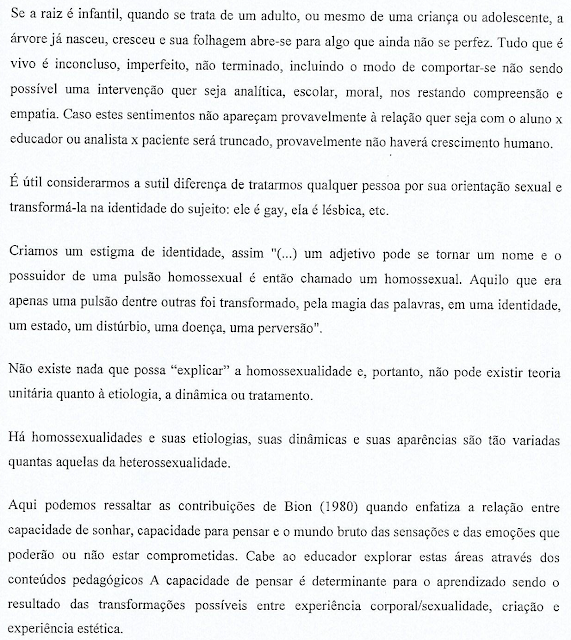|
|
||||||||||||||||||||||||||||||||||||||||||||||||||||||||||||||||||||||||||||||||||||||||||||||||||||||||||||||||||||||||||||||||||||||||||||||||||||||||||||||
terça-feira, 23 de fevereiro de 2016
ABA INGLÊS 42
ABA INGLÊS 41
|
|
||||||||||||||||||||||||||||||||||||||||||||||||||||||||||||||||||||||||||||||||||||||||||||||||||||||||||||||||||||||||||||||||||||||||||||||||||||||||||||||
sexta-feira, 19 de fevereiro de 2016
LINKS 45
http://canaldoensino.com.br/blog/concursos-publicos-mais-cobicados-de-2016
http://canaldoensino.com.br/blog/photoshop-online-10-dicas-para-usar-o-editor-de-fotos-virtual
http://canaldoensino.com.br/blog/8-formas-de-avaliar-sem-ser-por-multipla-escolha
http://canaldoensino.com.br/blog/como-identificar-se-um-numero-e-primo
http://canaldoensino.com.br/blog/organize-sua-rotina-de-estudos-e-seja-um-aluno-nota-10
http://canaldoensino.com.br/blog/marcio-andrade-e-o-primeiro-brasileiro-indicado-ao-premio-nobel-da-educacao
http://canaldoensino.com.br/blog/15-documentarios-no-netflix-que-todo-empreendedor-deveria-assistir
http://canaldoensino.com.br/blog/congresso-online-de-produtividade-em-concursos-publicos
http://canaldoensino.com.br/blog/16-universidades-estrangeiras-que-oferecem-cursos-de-curta-duracao
http://canaldoensino.com.br/blog/6-maneiras-divertidas-para-aprender-ingles-online
http://canaldoensino.com.br/blog/10-dicas-para-melhorar-a-concentracao-nos-estudos
http://canaldoensino.com.br/blog/o-que-e-gramatica-prescritiva
http://canaldoensino.com.br/blog/pensadores-nacionais-confirmam-prensenca-no-congresso-educacional
http://canaldoensino.com.br/blog/corpbusiness-realiza-2-congresso-lean-seis-sigma-performance-visando-estrategia-e-competividade-nas-empresas
http://canaldoensino.com.br/blog/atencao-novo-acordo-ortografico-ja-esta-em-vigor-no-brasil
http://canaldoensino.com.br/blog/google-academico-guia-completo-para-busca-de-artigos-cientificos
http://canaldoensino.com.br/blog/como-fazer-um-curriculo-para-conseguir-um-emprego
http://canaldoensino.com.br/blog/curso-gratis-de-fotografia-digital
http://canaldoensino.com.br/blog/verbos-auxiliares-em-ingles-quais-sao-e-como-usa-los
http://canaldoensino.com.br/blog/dicas-para-atingir-a-alta-performance-no-trabalho
http://canaldoensino.com.br/blog/materias-mais-populares-nas-provas-de-concurso
http://canaldoensino.com.br/blog/pronatec-tudo-o-que-voce-precisa-saber-sobre-os-cursos-tecnicos
http://canaldoensino.com.br/blog/jovem-aprendiz-primeiros-passos-para-ingressar-no-universo-corporativo
http://canaldoensino.com.br/blog/curso-gratis-de-adobe-photoshop
http://canaldoensino.com.br/blog/aulas-ao-vivo-gratis-de-resolucao-de-questoes-do-enem
http://canaldoensino.com.br/blog/por-que-o-ensino-a-distancia-cresceu-tanto-no-brasil
http://canaldoensino.com.br/blog/voce-sabe-o-que-sao-os-processos-de-top-down-e-bottom-up
http://canaldoensino.com.br/blog/5-tecnicas-para-aumentar-a-concentracao-nos-estudos
http://canaldoensino.com.br/blog/como-saber-se-um-curso-e-credenciado-pelo-mec
http://canaldoensino.com.br/blog/fies-tudo-o-que-voce-precisa-saber-sobre-o-financiamento-estudantil
http://canaldoensino.com.br/blog/curso-gratis-de-alemao-basico
http://canaldoensino.com.br/blog/truques-para-entrar-em-qualquer-concurso-publico-que-voce-desejar
http://canaldoensino.com.br/blog/como-aprender-politica-no-colegio
http://canaldoensino.com.br/blog/conheca-70-instituicoes-que-oferecem-bolsa-de-estudos-no-exterior
http://canaldoensino.com.br/blog/mentalidade-inovadora-o-que-e-e-como-desenvolver
http://canaldoensino.com.br/blog/8-aplicativos-para-ensinar-ingles-para-criancas
http://canaldoensino.com.br/blog/curso-gratis-de-ingles-para-negocios-e-turismo
http://canaldoensino.com.br/blog/voce-sabe-a-diferenca-entre-coaching-e-mentoring
http://canaldoensino.com.br/blog/3-ferramentas-para-colocar-sua-ideia-em-pratica
http://canaldoensino.com.br/blog/o-que-fazer-quando-estiver-com-sono-em-aula
http://canaldoensino.com.br/blog/blogs-uma-otima-maneira-de-treinar-a-escrita
http://canaldoensino.com.br/blog/como-fazer-trabalho-de-escola-em-tempo-recorde
http://canaldoensino.com.br/blog/photoshop-online-10-dicas-para-usar-o-editor-de-fotos-virtual
http://canaldoensino.com.br/blog/8-formas-de-avaliar-sem-ser-por-multipla-escolha
http://canaldoensino.com.br/blog/como-identificar-se-um-numero-e-primo
http://canaldoensino.com.br/blog/organize-sua-rotina-de-estudos-e-seja-um-aluno-nota-10
http://canaldoensino.com.br/blog/marcio-andrade-e-o-primeiro-brasileiro-indicado-ao-premio-nobel-da-educacao
http://canaldoensino.com.br/blog/15-documentarios-no-netflix-que-todo-empreendedor-deveria-assistir
http://canaldoensino.com.br/blog/congresso-online-de-produtividade-em-concursos-publicos
http://canaldoensino.com.br/blog/16-universidades-estrangeiras-que-oferecem-cursos-de-curta-duracao
http://canaldoensino.com.br/blog/6-maneiras-divertidas-para-aprender-ingles-online
http://canaldoensino.com.br/blog/10-dicas-para-melhorar-a-concentracao-nos-estudos
http://canaldoensino.com.br/blog/o-que-e-gramatica-prescritiva
http://canaldoensino.com.br/blog/pensadores-nacionais-confirmam-prensenca-no-congresso-educacional
http://canaldoensino.com.br/blog/corpbusiness-realiza-2-congresso-lean-seis-sigma-performance-visando-estrategia-e-competividade-nas-empresas
http://canaldoensino.com.br/blog/atencao-novo-acordo-ortografico-ja-esta-em-vigor-no-brasil
http://canaldoensino.com.br/blog/google-academico-guia-completo-para-busca-de-artigos-cientificos
http://canaldoensino.com.br/blog/como-fazer-um-curriculo-para-conseguir-um-emprego
http://canaldoensino.com.br/blog/curso-gratis-de-fotografia-digital
http://canaldoensino.com.br/blog/verbos-auxiliares-em-ingles-quais-sao-e-como-usa-los
http://canaldoensino.com.br/blog/dicas-para-atingir-a-alta-performance-no-trabalho
http://canaldoensino.com.br/blog/materias-mais-populares-nas-provas-de-concurso
http://canaldoensino.com.br/blog/pronatec-tudo-o-que-voce-precisa-saber-sobre-os-cursos-tecnicos
http://canaldoensino.com.br/blog/jovem-aprendiz-primeiros-passos-para-ingressar-no-universo-corporativo
http://canaldoensino.com.br/blog/curso-gratis-de-adobe-photoshop
http://canaldoensino.com.br/blog/aulas-ao-vivo-gratis-de-resolucao-de-questoes-do-enem
http://canaldoensino.com.br/blog/por-que-o-ensino-a-distancia-cresceu-tanto-no-brasil
http://canaldoensino.com.br/blog/voce-sabe-o-que-sao-os-processos-de-top-down-e-bottom-up
http://canaldoensino.com.br/blog/5-tecnicas-para-aumentar-a-concentracao-nos-estudos
http://canaldoensino.com.br/blog/como-saber-se-um-curso-e-credenciado-pelo-mec
http://canaldoensino.com.br/blog/fies-tudo-o-que-voce-precisa-saber-sobre-o-financiamento-estudantil
http://canaldoensino.com.br/blog/curso-gratis-de-alemao-basico
http://canaldoensino.com.br/blog/truques-para-entrar-em-qualquer-concurso-publico-que-voce-desejar
http://canaldoensino.com.br/blog/como-aprender-politica-no-colegio
http://canaldoensino.com.br/blog/conheca-70-instituicoes-que-oferecem-bolsa-de-estudos-no-exterior
http://canaldoensino.com.br/blog/mentalidade-inovadora-o-que-e-e-como-desenvolver
http://canaldoensino.com.br/blog/8-aplicativos-para-ensinar-ingles-para-criancas
http://canaldoensino.com.br/blog/curso-gratis-de-ingles-para-negocios-e-turismo
http://canaldoensino.com.br/blog/voce-sabe-a-diferenca-entre-coaching-e-mentoring
http://canaldoensino.com.br/blog/3-ferramentas-para-colocar-sua-ideia-em-pratica
http://canaldoensino.com.br/blog/o-que-fazer-quando-estiver-com-sono-em-aula
http://canaldoensino.com.br/blog/blogs-uma-otima-maneira-de-treinar-a-escrita
http://canaldoensino.com.br/blog/como-fazer-trabalho-de-escola-em-tempo-recorde
Assinar:
Comentários (Atom)
-
Como fazer um globo terrestre O que o aluno poderá aprender com esta aula Que é possível representar o planeta Terra em um modelo qu...
-
METAS AÇÕES RESPONSÁVEL Aprimoramento das práticas docentes. Visita as salas de aula pela coord...
-
Plano de Aula – Espaço Digital Tema: Gentileza gera Gentileza 1º Ano Acolhida: Vídeo/música – Palavrinhas Mágicas: Eli...


























